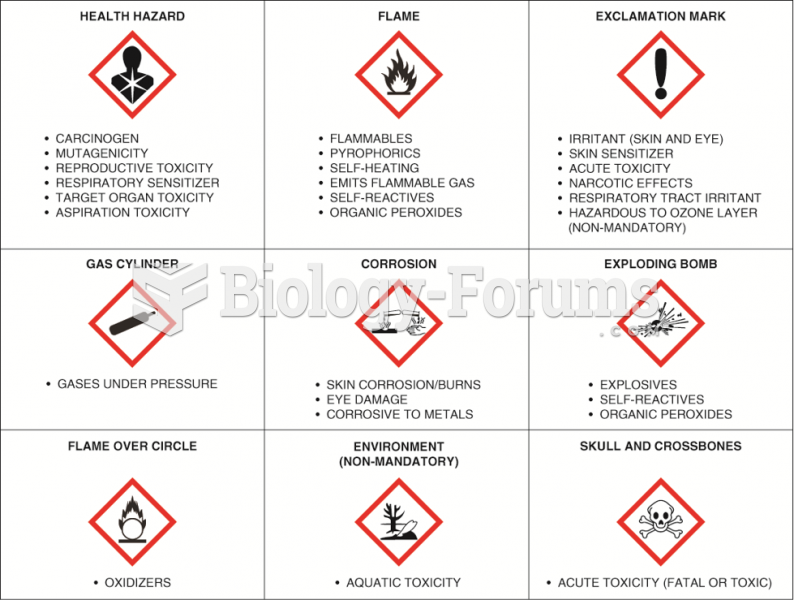|
|
|
Though newer “smart” infusion pumps are increasingly becoming more sophisticated, they cannot prevent all programming and administration errors. Health care professionals that use smart infusion pumps must still practice the rights of medication administration and have other professionals double-check all high-risk infusions.
The heart is located in the center of the chest, with part of it tipped slightly so that it taps against the left side of the chest.
Increased intake of vitamin D has been shown to reduce fractures up to 25% in older people.
Egg cells are about the size of a grain of sand. They are formed inside of a female's ovaries before she is even born.
People about to have surgery must tell their health care providers about all supplements they take.







